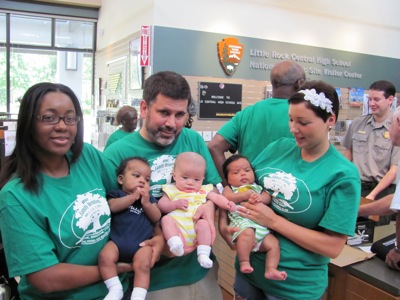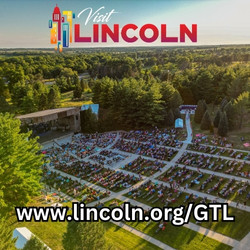
Two years ago, Ron Owens of Cincinnati began a quest to find out more about his family. “I didn’t know my family,” said Owens. “I started on a trek to find out who is who so my children will have an idea of where they came from.”
Clifton Taulbert, a Tulsa, Okla., writer, knows a lot about his family. His book “Once Upon a Time When We Were Colored” about a black neighborhood in a small Mississippi town from the 1940s to the 1960s was turned into a 1995 movie starring Phylicia Rashad. “We are that family,” he said.
Both men ended up in Little Rock, Ark., the first week in July for their family reunions. Owens helped organize his family’s first reunion; Taulbert is the regular coordinator for his family, which has gotten together every other year for 20 years.
A combination of factors drew the men to have their reunions in Little Rock. One factor that attracts many African-American family reunions to the Arkansas capital is family ties.
“So many have had family here, maybe up to a 100 years ago, who then moved, or they have an aunt or grandparent that lived outside Little Rock in farming communities,” said Brenda Luebke, reunion coordinator for the Little Rock Convention and Visitors Bureau. “Many are coming back to Little Rock to their roots.”
Although the nearly 250 people who attended Owens’ reunion came from as far away as Seattle and Los Angeles, strong family connections to Arkansas were a major factor in choosing Little Rock.
Owens discovered that many of his relatives had grown up in rural Arkansas and migrated to Little Rock. “My father was born in Monticello, about 100 miles south,” he said.
“We found out that our family, in the 1880s, had a church in the country near Pine Bluff.”
Owens planned a trip to the church for the reunion and discovered that his grandfather and great-uncle were buried there; they had been superintendents of the church.
“I got up to speak, and all I could do was cry,” he said.
History a consideration
Taulbert said although some of his family live in the Little Rock area, history also was an important consideration.
“We wanted a place that incorporated history, especially African-American history,” said Taulbert, “in this case, the Little Rock Nine and the Arkansas Baptist College. And many members wanted to see the Clinton Presidential Center.”
Taulbert said the approximately 100 members who attended from around the country had a formal dinner at the Clinton Center, “which was absolutely phenomenal.”
The next day, Saturday, they visited the museum for the Little Rock Nine, the group of students who helped integrate Little Rock Central High School in 1957 after President Dwight Eisenhower called in the National Guard. The museum is in a former service station across the street from the high school.
“We then went over to the high school where Nancy Rousseau, the principal, gave an excellent presentation,” said Taulbert. “We had lunch there. On Sunday, we had a memorial service in Old Main, which was built by former slaves, at the historic black Arkansas Baptist College.
“Also, being located downtown, everything was within walking distance of the River Market area. Everything was very well contained. We were able to accomplish all our goals and objectives.”
Taulbert said his family has three goals in its biannual reunions.
“First, to renew and maintain relationships — that is critical for every generation to know the preceding generation,” he said. “Our second goal is to infuse the family with meaningful history, American and African-American history.
“Third, to have a place we feel they can have a very good time during their spare time. Saturday afternoon and night are wide open so that some members who have not met each other can get together in small groups.
“We want a place with multiple restaurants so that even though we have collected together, we can branch off in smaller groups.”
Luebke said family reunions, about 95 percent of which are African-American, are big business for Little Rock, and her bureau provides assistance in helping them find competitive rates at hotels and venues and parks that are large enough for them.
“African-American families may be 50 people or maybe 300. They have very large extended families,” she said. “Reunions are about reconnection and making memories. I see myself helping them find new ways to make memories.”











